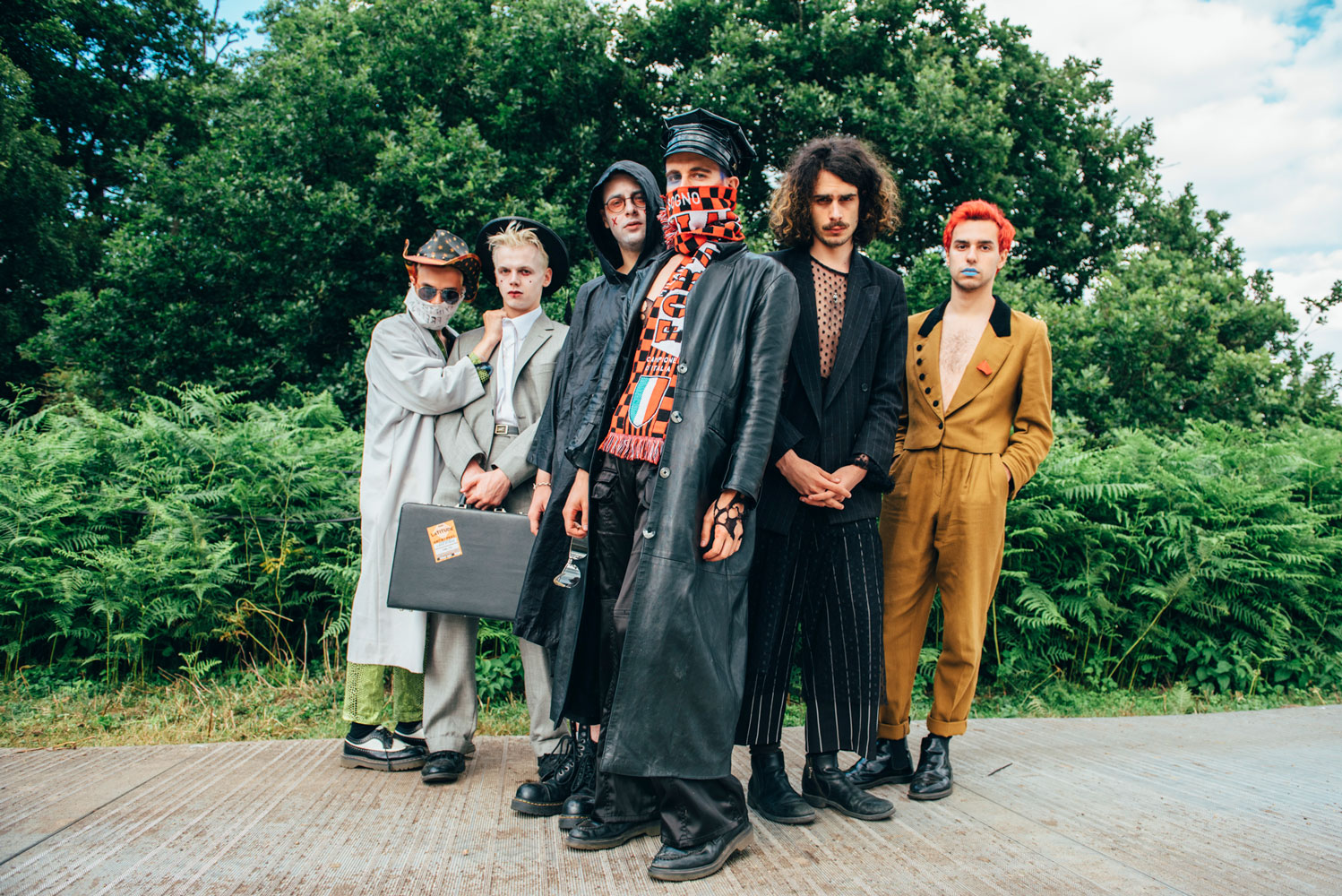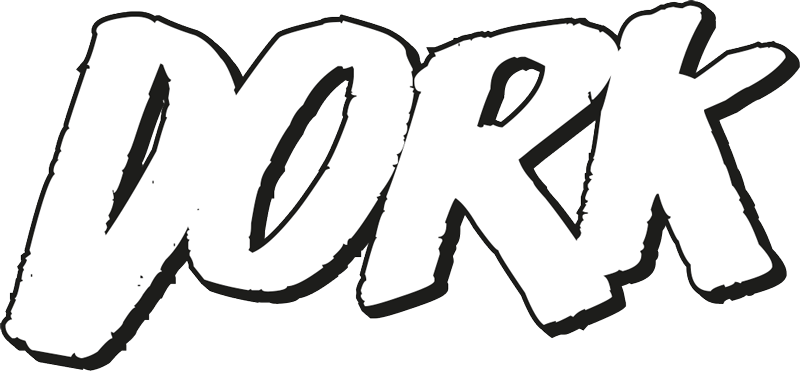Most artists at a festival are pretty similar. Their music may exist at different points on a spectrum – but they do things the same way. Turn up, play, piss off. You’ll go from one to another having a great time, but never being shaken out of that nice, safe bubble.
And then there’s HMLTD.
Because this lot, they’re not the same. They inhabit their own world of art with a statement. Usually, when on the road, they transform venues into textured worlds full of (quite often disturbing) decoration and mystique. They can’t do that at a festival, obviously, but if anything the juxtaposition only stands out more. We grabbed them at Latitude for a quick primer on just how they’re blazing their own trail.
How does it feel to be at Latitude? You’re quite high up the bill.
Henry: Yeah I think it’s a really nice progression from last year. Last year whenever we played it would be in a very underground venue, late at night, to people who are all under 24. Now it’s like, we’re at a festival, it’s a bit more of a middle-aged crowd, a bit more middle-class crowd, and it’s obviously different. So in that sense, it introduces a new dynamic, and it forces you to reinvent yourself in certain ways, to innovate.
What’s it like transferring your live show to festivals?
Henry: When we do our own shows we curate the environment quite meticulously, so most of our regional shows, and always when we play London, we decorate the venue with a particular theme, be it b-movie horror or paradise, but at festivals obviously you have a very narrow slot, so that’s impossible. So you have to bring other things out, like the light show, stuff like that.
Achilleas: At festivals, there’s a seduction. We start trying to seduce people.
Henry: Yeah, especially when it’s not your own fans, you’ve got to seduce people. You’ve got to win people over. It’s a nice challenge.
Does it change how you approach the stage?
Henry: In a sense, it’s just like we’re starting out again because we’re playing to people who don’t know what we’re like. When it’s a new audience that’s always the case, nothing’s taken for granted. We’d never be lazy about it obviously.
Your ethos is very much performance with a message, how key is that to you?
Henry: It’s crucial. When we go onstage something which is quite a common misconception is the extent to which what we’re doing is performance, whereas actually what we’re trying to do onstage is reach each of our individual identities and put that across. I think the main message of what we’re doing is having confidence in your own identity, having confidence in your ability to express that, because that’s what we try to do onstage. That’s an important message.
What’s it been like getting your recorded music out there, compared to playing these shows?
Henry: It’s an interesting process, largely because the type of music we play flits across a lot of different genres. From a production perspective, you, therefore, have to find a producer who’s capable of not only producing rock’n’roll, but also hip-hop, trap, dubstep, you name it. That’s quite a challenge, but it forces you to innovate as well.
Achilleas: There’s a significant difference in terms of the live shows are a point in time where you just do something, and you go away, whereas [with recordings] the music stays on there forever, so it’s very hard to channel our energies that we have in the live show. It’s something we’ve struggled with, but I think we’re at the stage now where we’re able to translate that. Our future recordings, our future releases that are in the works now, are hopefully going to capture this well.

[sc name=”pull” text=”Our catchphrase is, we don’t want to preach to the choir.”]
Has that been one of the main challenges for you?
Henry: It is, but you get better at it. A bit like playing live, it’s something you get better at the more you do it. Obviously, we’ve only put four songs out to the world, we haven’t had that much experience of recording, but I think we’re getting better.
Achilleas: There’s a lot of things yet to come out, a lot of different aspects of our identities that are going to emerge very soon.
Not being held back by boundaries seems to be a key thing for you, was there a challenge in trying to approach that in everything you do?
Henry: I think it’s something that came through organically.
Achilleas: Just the nature of having six band members.
Henry: We are an unusually big band. It’s always difficult to squeeze the six of us in a photo, and I think the same thing applies to our music. We’ve got six different music tastes, is the key thing. We’re not one of those bands where we all like, love a particular band. Most of the stuff they like I fucking hate, and vice-versa. So there’s a lot of arguing about that. That comes through in the sound, and obviously in our identities, because the six of us have different identities, and that comes through in the performance.
How do you feel about the core of South London artists coming through, how connected to that world do you feel?
Henry: There is an amazing artistic community, not only in music, but in the visual arts…
Achilleas: Fashion…
Henry: And so for us, collaboration is very important, so we try to collaborate a lot across a lot of different mediums. It’s a strange thing because usually when there is this community of bands that’s been put together, there’s usually a genre which links them, whereas I think the defining characteristic of what people refer to as the current music scene in South London, is actually more defined by the fact that there are a lot of bands that are very different in sound. I guess the friendship is the main thing that keeps it together.
Do you have an ambition for yourself as a band?
Achilleas: We’re all very ambitious individuals, and collectively as a band, we’re very a very ambitious band. We want to transform the musical landscape. we want to put our recordings out there, and we want to be influential. We’re very ambitious, yeah.
Henry: Our catchphrase is, we don’t want to preach to the choir.





